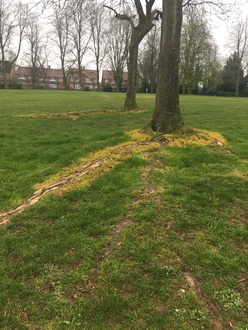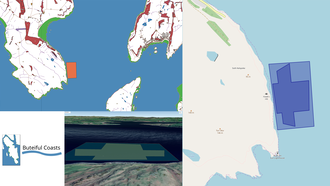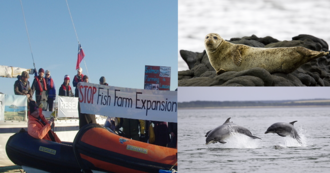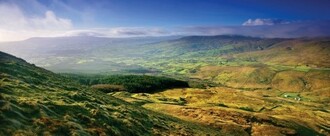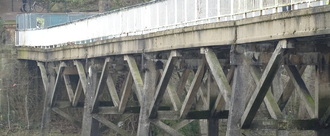-
Cease using glyphosate weed killer in our towns and parks.A number of cities, counties, states and countries throughout the world have taken steps to either restrict or ban glyphosate the active ingredient in weed killer (such as Roundup). Glyphosate has been designated as a probable human carcinogen by the World Health Organization (WHO). It has also been linked to the decline in populations of the honey bee and other insects. Some of us remember when driving our windscreen would be covered with insects. It is now well documented that we are facing an enormous loss of insect life in the UK, some estimate an 80% loss in the last 30 years. This is due to pollution, loss of habitat, global warming and particularly to the over-use of pesticides/insecticides. The glyphosate used in weed killer has been linked to a decline in insect populations including our pollinators. We understand that on average four times yearly, Reading Borough Council sprays glyphosate weed killer around our park benches and at the base of many of our parkland trees and trees around our town. We, the undersigned would like Reading Borough Council to cease the use of Glyphosate products and allow weeds to grow around the base of trees as have they have for millennia as part of natural biodiversity and to use the money saved by doing this to use alternative methods for cutting back grasses close to park benches.867 of 1,000 SignaturesCreated by Eloise Jones
-
Ban the use of Vapes in Public PlacesTo protect the health of those who do not smoke4 of 100 SignaturesCreated by William Chaundy
-
Save the bees = saving the environmentBan All Five Pesticides Linked To Bee Deaths! France Becomes The First Country To that put this into action. In May 2018 the EU banned three of the significant pesticides implicated in the collapse of bee populations. Clothianidin, imidacloprid and thiamethoxam are now prohibited for use on crops. We need to go a step further and set a high bar in the effort to save the bees. Given the importance of pollinators to nature and the survival of the biosphere, this could not happen too soon! Studies have reported that the neonicotinoid pesticides attack the central nervous system of insects, leading to loss of memory and homing skills, in addition to reduced fertility. Bees that cannot find their way back to the hive quickly die. However the pesticides have also been shown to affect butterflies, birds and other pollinating insects. There is a reason why France is ahead of the field in this regard: The “bee killing” pesticides were tested first on French fields in the 1990’s – and the French farmers witnessed first-hand the catastrophic effects that occurred in 1994; describing “a carpet of dead bees”. 400,000 bee colonies died within days – yet the story was buried under a layer of corruption and distorted science. Since that time, activists and manufacturers have battled to control the situation. Full stories Overwhelming Evidence Linking Neonicotinoid Insecticides To Massive Die-off Of Bees And Songbirds The new move is certain to be celebrated by ecologists and sets an example of protection of nature that the rest of the world needs to follow. ..... We must also follow this! Please help me, put this into action.202 of 300 SignaturesCreated by Mia Depper
-
Persimmon UK, give us our trees and allow us to breathe! !Allowing people to breathe oxygen freely, finish off your line of trees (approx 16 and furthermore, plant trees in the neighbourhood NOW! We have a right to look after our environment-please give us OUR TREES NOW, after nearly 13 years of denial! Blue prints (Planning Dept.) show trees. Why have you not provided a barrier and protection, for a wheelchair unit- bungalow!146 of 200 SignaturesCreated by Surinder Saroya
-
Declare a Climate Emergency in NewportAll governments (UK, Wales and local) have a duty to limit the negative impacts of climate breakdown, and local governments that recognise this should not wait for their national governments to change their policies. It is important for the residents of Newport that our council commits to carbon neutrality as quickly as possible. Humans have already caused irreversible climate change, the impacts of which are being felt around the world. Global temperatures have already increased by 1 degree Celsius from pre-industrial levels. Atmospheric CO2 levels are above 400 parts per million (ppm). This far exceeds the 350 ppm deemed to be a safe level for humanity; In order to reduce the chance of runaway global warming and limit the effects of climate breakdown, it is imperative that we as a species reduce our CO2eq (carbon equivalent) emissions from their current 6.5 tonnes per person per year to less than 2 tonnes as soon as possible; Individuals cannot be expected to make this reduction on their own. Society needs to change its laws, taxation, infrastructure, etc., to make low carbon living easier and the new norm; Cities are uniquely placed to lead the world in reducing carbon emissions, as they are in many ways easier to decarbonise than rural areas – for example because of their capacity for heat networks and mass transit; The consequences of global temperature rising above 1.5°C are so severe that preventing this from happening must be humanity’s number one priority. Here in Newport we need to be working to protect our city from the effects of flooding that are made more severe by rising temperatures. Bold climate action can deliver economic benefits in terms of new jobs, economic savings and market opportunities (as well as improved well-being for people worldwide and in Newport). We the undersigned want to see Newport Council declare a climate emergency, and question why the council haven't declared one already giving the severity of our risk.136 of 200 SignaturesCreated by Amelia Womack
-
Keep our BUTEiful Coasts - Oppose the Hawk's Neb fish farmThere is consideration of a fish farm in the waters around Bute, along the West Island Way, near Glen Callum Bay, centred on Hawk's Neb. We would like your help opposing this, for its impact on the Views, Land, Waters, Tourism and Industry of the island. For more maps, and source documents, please visit the ButeifulCoasts website, link below the share buttons at the bottom of the page. Views Bute is an island noted for its Areas of Panoramic Quality, and is designated as such by Argyll & Bute Council. The proposed site for the fish farm would greatly impact the views of the Cumbraes from the south end of the island, and be a great impact on views of the island from the Cumbraes and the waters. Land Fish farms aren't contained at sea. They require shoreside support, and their waste products and chemical washes come ashore. This particular proposed site, is right on the shore, meaning all the faecal matter, feed, medicines, and other chemicals would be right on shore for those using the West Island Way to encounter. On top of that, that part of the shoreline is designated a Very Sensitive Area to Development, meaning that it has a very limited capacity for new development without compromising the area. Waters The waters around Bute are of varying quality, according to SEPA and other bodies. The proposed site would sit on the boundary of one of the grading regions, where the water quality declines. The site would also be on top of several Prominent Marine Features, such as natural oyster beds and specific clam species. The Sea Lice clouds that fish farms generate would also spread out into the Clyde, affecting the migratory fish species that pass through the waters. Tourism The Isle of Bute is a designated Tourism Development area, with good reason. We have many excellent activities focused around the proposed fish farm site, that would be impacted by it. Sailing boats navigate all around the island, and the Cumbraes. Motor Boating, kayaking and canoeing, sea boat angling, and more are all noted as being prominent in the area. Diving in the area is well known, and there are nearby ship wrecks. There are many who come to the island to Birdwatch or wildlife watch, and use the West Island Way to do so. Industry The fish farm would have a detrimental impact on the island's industry. With it getting in the way of already established commercial activity in the proposed site area, and cutting into tourist spend as they go elsewhere, the site's 6 local jobs are at risk themselves to automation progress in the fish farm industry. The proposed site is also right in an extremely high traffic volume region of the Clyde, with all manner of commercial shipping passing by, including Cruise Ships. If it doesn't pose a navigational hazard, the customers will surely want to avoid going to the island with the fish farm right on its shore.1,451 of 2,000 SignaturesCreated by William Nelson
-
Stop Tree NettingThis has become an increasingly widespread method, by housing developers across the UK, to prevent wild birds from nesting in trees and hedgerows, which these organisations have earmarked for destruction. The UK has been a drastic reduction in the number of wild birds, through the destruction of their native habitat. These trees and hedges provide both nesting sites and also are the source of fruits and berries which these animals rely on as a food source throughout the year. I believe I am not alone in finding this practice outrageous, and I would welcome support from others to make this illegal146 of 200 SignaturesCreated by Rob Smith
-
Halt salmon industry expansion around Arran!The Environment, Climate Change & Land Reform Committee of the Scottish Parliament have stated in regard to large-scale open-cage salmon production "If the current issues are not addressed this expansion will be unsustainable and may cause irrecoverable damage to the environment." The Community of Arran Seabed Trust say that the consequences of large numbers of fish deaths, contamination by fish sewage, food waste, chemicals and medicals will be detrimental to the environment, health and economy of the Isle of Arran and its neighbours. The proposal by the Scottish Salmon Company for a new and larger site off the north-east coast of Arran will not only spoil the enjoyment of a previously undeveloped part of the island, but also disturb the native wildlife such as otters, seals, porpoises and basking sharks.7,846 of 8,000 SignaturesCreated by Russ Cheshire
-
Round 2: Protected Wildlife Species at Risk from Intensive Poultry development in North ShropshireWe need your signatures for the second time, to stop the proposed intensive poultry development that will put the existing wildlife habitats of badgers, otters, bats, other mammals & some birds and amphibians in real danger. With active badger setts located adjacent to the site, this threatens their habitat and welfare. The loss of habitat of endangered and protected species such as badgers & Otters is a real risk! The proposed development is not an existing farm, does not include any existing farm or other buildings/ infrastructure and is located 1km away from the nearest working farm buildings. It is situated in an uninterrupted English greenfield site which makes up part of the national character profile of Shropshire and the United Kingdom. The area is celebrated and enjoyed for its history, beauty, diversity and tranquillity. This green corridor, with its multiple heritage assets, listed buildings, ancient woodland, rivers, scheduled ancient monuments, ancient hedgerows, historic villages, battlefield site, foot paths, bridleways and nearby vibrant market town & Shropshire Union Canal, makes up a significant part of Shropshire’s natural and historic environment. Pristine uninterrupted greenfield land should be celebrated, cherished and preserved for many reasons, not least for the future generations to enjoy. The proposed development site sits above a principle aquifer from which Severn Trent draws its drinking water resources. The site also slopes towards a tributary to the Tern River. 32,000 hens would cause the land to be compacted and pollution caused from run off from hen excrement could lead to contamination of the watercourse. As well as the proposed development posing a HUGE visual intrusion, it also poses ten threats to the community, they are: TRAFFIC DANGER- traffic has already reached danger level on our narrow approach roads. The Betton approach is also a school/nursery run and the increased traffic, including HGV and other heavy vehicles, will prove the tipping point in unacceptable risks. STENCH/FLIES - from 2 tonnes/day of excrement, which will carry in the prevailing wind (SW) along Main Road. ENTRAPMENT - For those unfortunate families close to the site, there is no escape. If you are driven to move, who will buy your house? RIVER POLLUTION - Contamination of the river located very close to the site due to surface water run off pollutants. HERITAGE - The proposed development is close/in line of sight to many Listed Properties, ancient woodland and heritage assets, plus, very close to a beautiful bridleway and footpaths. HABITAT LOSS – Ripping out ancient hedge row and replacing green meadow with concrete, adjacent to existing habitats such as active badger setts, would deplete local wildlife populations. DEVASTATION - Betton is the attractive gateway to Norton, Best Kept Village and Champion of Champions, Britain in Bloom. The spoiling of this beautiful greenfield site will make a mockery of all the outstanding village work over many years. MISSION CREEP - This application is the advance guard for a much bigger plan. One unit of 32,000 birds is scarcely viable. Don’t be deceived by this Trojan Horse – 65% of all egg-laying applications in Shropshire are for expansion of facilities. CONSTRUCTION - Concrete access road, turning circle, barn, feed silo, earth moving, light pollution etc EMPLOYMENT BENEFITS - There are none. Poultry facilities are not labour intensive - they are hen intensive. (32000 hens =1 ½ people). Reasons why this planning proposal should be refused: - Negative visual impact - Air and river ammonia pollution -Habitat Loss - Odour, flies and noise -Negative impact on wildlife habitats such as otters, badgers, bats and owls who live nearby -Danger from HGVs vehicles/tractors on the roads -Not a diversification for an existing farm -Not being located next to existing farm buildings524 of 600 SignaturesCreated by lara white
-
Protect Northern Ireland's Air and Water and CountrysideThe Department of Agriculture, Environment and Rural Affairs (DAERA) has continually failed to protect our water, air and land. * 69% of Northern Ireland's rivers, 76% of lakes and 60% of coastal waters failed water quality standards (2018). * 98% of Northern Ireland's protected Special Areas of Conservation exceeded critical levels of ammonia deposition at which ecological damage occurs (2017). * Northern Irelands' Freshwater bird population has decreased by 42%, the Skylark population by 48% and the Greenfinch population by 52% (1994-2016). Legislation for Brexit will give overriding power to DAERA, even if a project damages the environment. Northern Ireland has no Independent and Accountable Environmental Protection Agency. The Republic of Ireland, England, Scotland and Wales all do. We need equality in protecting the air, water and land masses that we all share. We need good governance as we leave the European Union. We need to create a safe and vibrant Environment and Economy which will protect the Health and Wellbeing of our families and communities, everywhere in N. Ireland.691 of 800 SignaturesCreated by Environmental Gathering
-
Declare a Climate EmergencyFULL TEXT OF MOTION - DECLARE A CLIMATE EMERGENCY 1. Humans have already caused irreversible climate change and ecological devastation. The impacts of which are being felt around the world. Global temperatures have already increased by 1.1 degree Celsius from pre-industrial levels. Atmospheric CO2 levels are above 400 parts per million (ppm). This far exceeds the 350 ppm deemed to be a safe level for humanity and all the other species that we co-exist with and depend on; 2. In order to reduce the chance of runaway global warming and limit the effects of climate breakdown, and ecocide, it is imperative that we as a species reduce our CO2e (carbon dioxide equivalent) emissions from their current 6.5 tonnes per person per year to 1 tonne as soon as possible, and live within the resource means of our planet; 3. Individuals cannot be expected to make this reduction on their own. Society needs to change its laws, taxation, infrastructure, etc., to make low carbon and sustainable living easier and the new norm. 4. Carbon emissions arise from both production and consumption of resources. 5. The Highland Council has already shown foresight and leadership when it comes to addressing the issue of climate change, through the development of the Carbon CLEVER initiative as well as by setting bold emissions reductions targets through its carbon management plan. 6. Unfortunately, our current plans and actions are not enough. The world is on track to overshoot the Paris Agreement’s 1.5°C limit before 2030. 7. The IPCC’s Special Report on Global Warming of 1.5°C, published in 2018, describes the enormous harm that a 2°C rise is likely to cause compared to a 1.5°C rise, and told us that limiting Global Warming to 1.5°C may still be possible with ambitious action from national and sub-national authorities, civil society, the private sector, indigenous peoples and local communities. 8. Councils around the world are responding by declaring a ‘Climate Emergency’ and committing resources to address this emergency. The Highland Council believes that: 1. All governments (national, regional and local) have a duty to limit the negative impacts of climate breakdown and the unsustainable abuse of our ecosystems, and local governments that recognise this should not wait for their national governments to change their policies. It is important for the residents and businesses of Highland and the UK that cities and regions commit to carbon neutrality as quickly as possible. 2. Cities are uniquely placed to lead the world in reducing carbon emissions, as they are in many ways easier to decarbonise than rural areas – for example because of their capacity for heat networks and mass transit. Inverness should aspire to be an exemplar in this respect, but the rural areas of the Highlands can also lead the way, building on work many communities have already undertaken; 3. The consequences of global temperature rising above 1.5°C are so severe that preventing this from happening must be humanity’s number one priority; and, 4. Bold climate action can deliver economic benefits in terms of new jobs, economic savings and market opportunities (as well as improved well-being for people worldwide). The Highland Council resolves to: 1. Declare a ‘Climate & Ecological Emergency’; 2. Re-commit to make the Highlands carbon neutral by 2025, taking into account both production and consumption emissions (scopes 1, 2 and 3); 3. Call on the Scottish Government to provide the powers and resources to make the 2025 target possible; 4. Work with other Councils to determine and implement best practice methods to limit global warming to less than 1.5°C and to consume global resources at a rate that can be sustained ; 5. Continue to work with partners across the city and region to deliver this new goal through all relevant strategies and plans; 6. Report to Full Council within six months with the actions the Council will take to address this emergency.373 of 400 SignaturesCreated by Anne Thomas
-
Save Preston's Old Tramroad BridgeThe tramroad bridge is an important pedestrian and cycle route into Preston. It is well used, providing a link to the footpath network based around the old railways and the Lancaster Canal tramroad. Many people have fond memories of the bridge, which has evolved from its original purpose as part of the canal, to being the much loved strucutre that it is today. Given that walking and cycling to work are far greener than using a car or even public transport, it would be foolhardy to remove this vital link in the network of pathways to the south of Preston.6,099 of 7,000 SignaturesCreated by Michael Nye
Hello! We use cookies to improve your experience by providing insights into how the site is being used. Find out more.
